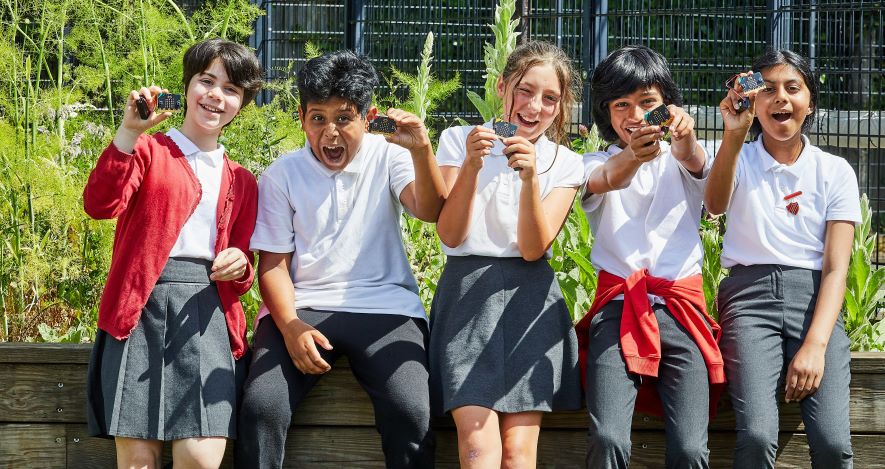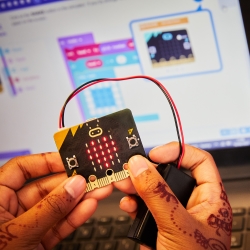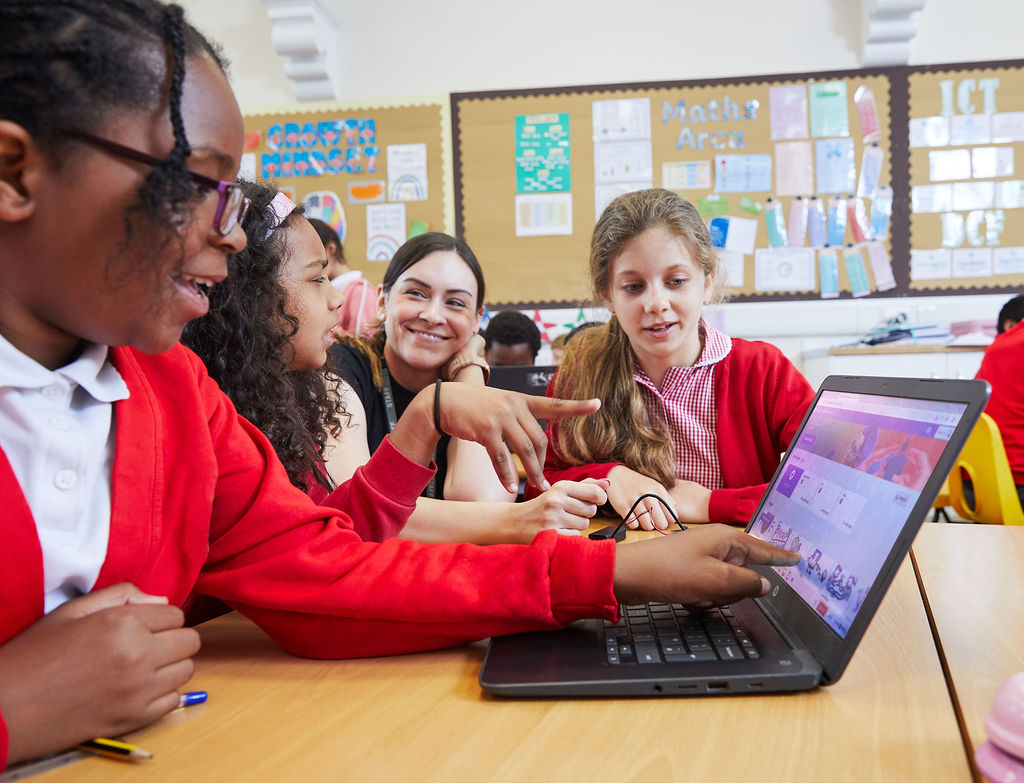Images courtesy of Micro:bit Educational Foundation.

Submitted by Rachel Gardner on Mon, 27/11/2023 - 11:23
In a new project about to get underway in our Raspberry Pi Computing Education Research Centre, researchers will explore over time the impact of physical computing on children who are introduced to it at primary school.
The new project is being made possible thanks to support by the Micro:bit Educational Foundation, the BBC and Nominet.
'Physical computing' involves combining software and hardware to build interactive physical systems that sense and respond to the real world.
It is an exciting way for young people to learn about computer systems and programming. But researchers want to know how engaging with physical computing supports the development over time of children’s creativity and digital capital, and their views of — and confidence in — their own technological capabilities.
This research will give us a unique, long-term insight into how physical computing builds children's understanding of technology, and the development of their creativity.
Gareth Stockdale, Micro:bit Educational Foundation
 The team will be studying this over a period of five years, working with school children who have engaged with the BBC micro:bit and other physical computing devices. The children will be 7-10 years old at the start of the study, and will be followed over five years as they progress through primary and into secondary education.
The team will be studying this over a period of five years, working with school children who have engaged with the BBC micro:bit and other physical computing devices. The children will be 7-10 years old at the start of the study, and will be followed over five years as they progress through primary and into secondary education.
The project will also explore the perceptions and attitudes of the children's parents and teachers.
The research team will be led by our colleague Dr Sue Sentance, Director of the Raspberry Pi Computing Education Research Centre here.
The Centre was set up in this Department in 2021 as a joint initiative between the University and the Raspberry Pi Foundation. It works to investigate how to engage all young people in computing, computer science and associated subjects.
Sue has worked in the area of physical computing in schools for some years, including publishing studies relating to the BBC micro:bit1.
She says: "We're excited to receive this generous donation from the Micro:bit Educational Foundation, BBC and Nominet enabling us to conduct this project.
"While we have seen through previous research that young people find the BBC micro:bit accessible and engaging in the short term, we don’t have any longitudinal research to find out whether these early experiences impact confidence and creativity in future years. Through this project, we’ll be able to regularly engage with a small group of children and find out how their interests and attitudes develop over the next five years."
 How physical computing builds children's understanding of technology
How physical computing builds children's understanding of technology
Gareth Stockdale, CEO at the Micro:bit Educational Foundation, says: "Our mission is to inspire every child to create their best digital future. Measuring the impact of our work is essential so we understand what works. We’re excited to be working with Dr Sue Sentance and her team on this research, as it will give us a unique, long-term insight into how physical computing builds children's understanding of technology, and the development of their creativity.
"It is also important to see how we can understand better the role of teachers and parents in delivering these physical computing experiences and therefore how we can better design our offer so that is able to help both these groups increase children's digital capital."
Five-year project
The project will run from November 2023 for five years. It is UK-wide and the researchers will be looking to engage with schools in England, Scotland, Wales and Northern Ireland. More information for schools on how to get involved with the project will follow shortly.
- Sentance, S., Waite, J., Yeomans, L., & MacLeod, E. (2017, November). Teaching with physical computing devices: the BBC micro: bit initiative. In Proceedings of the 12th workshop on primary and secondary computing education (pp. 87-96).

